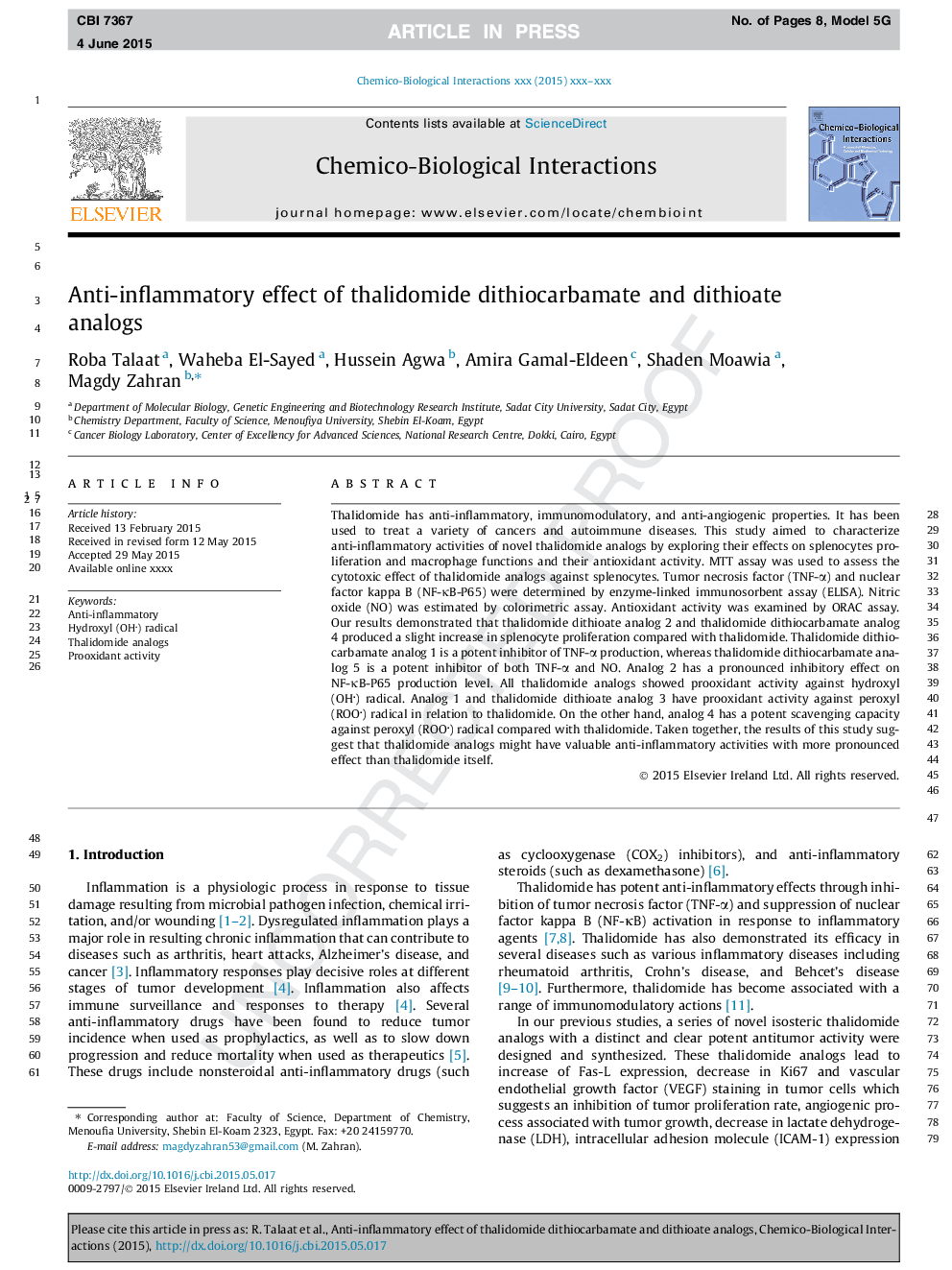| Article ID | Journal | Published Year | Pages | File Type |
|---|---|---|---|---|
| 5847815 | Chemico-Biological Interactions | 2015 | 8 Pages |
Abstract
Thalidomide has anti-inflammatory, immunomodulatory, and anti-angiogenic properties. It has been used to treat a variety of cancers and autoimmune diseases. This study aimed to characterize anti-inflammatory activities of novel thalidomide analogs by exploring their effects on splenocytes proliferation and macrophage functions and their antioxidant activity. MTT assay was used to assess the cytotoxic effect of thalidomide analogs against splenocytes. Tumor necrosis factor (TNF-α) and nuclear factor kappa B (NF-κB-P65) were determined by enzyme-linked immunosorbent assay (ELISA). Nitric oxide (NO) was estimated by colorimetric assay. Antioxidant activity was examined by ORAC assay. Our results demonstrated that thalidomide dithioate analog 2 and thalidomide dithiocarbamate analog 4 produced a slight increase in splenocyte proliferation compared with thalidomide. Thalidomide dithiocarbamate analog 1 is a potent inhibitor of TNF-α production, whereas thalidomide dithiocarbamate analog 5 is a potent inhibitor of both TNF-α and NO. Analog 2 has a pronounced inhibitory effect on NF-κB-P65 production level. All thalidomide analogs showed prooxidant activity against hydroxyl (OH) radical. Analog 1 and thalidomide dithioate analog 3 have prooxidant activity against peroxyl (ROO) radical in relation to thalidomide. On the other hand, analog 4 has a potent scavenging capacity against peroxyl (ROO) radical compared with thalidomide. Taken together, the results of this study suggest that thalidomide analogs might have valuable anti-inflammatory activities with more pronounced effect than thalidomide itself.
Related Topics
Life Sciences
Environmental Science
Health, Toxicology and Mutagenesis
Authors
Roba Talaat, Waheba El-Sayed, Hussein S. Agwa, Amira M. Gamal-Eldeen, Shaden Moawia, Magdy A.H. Zahran,
